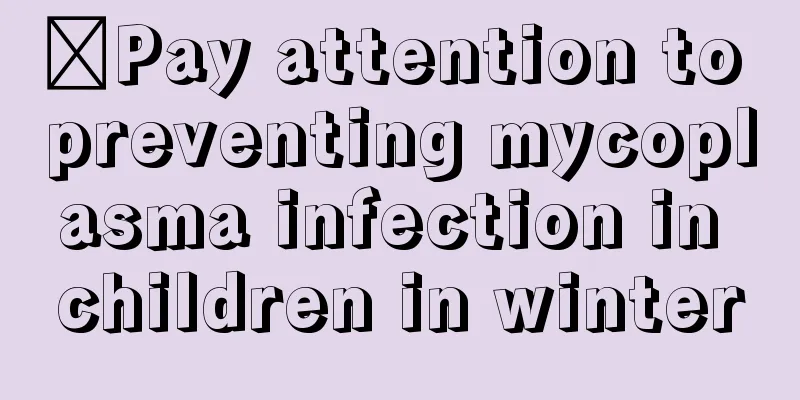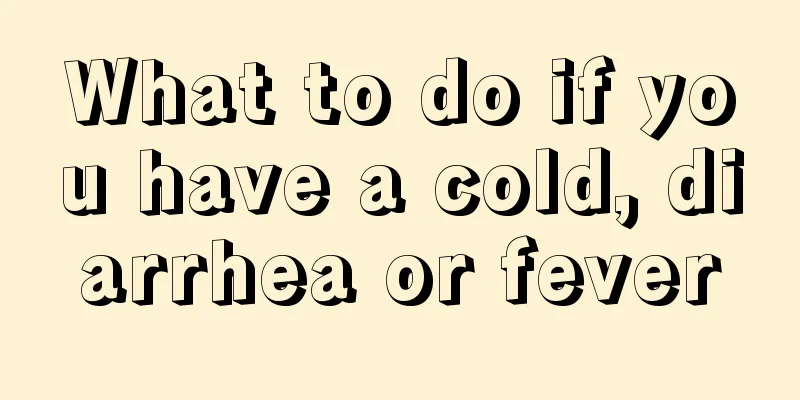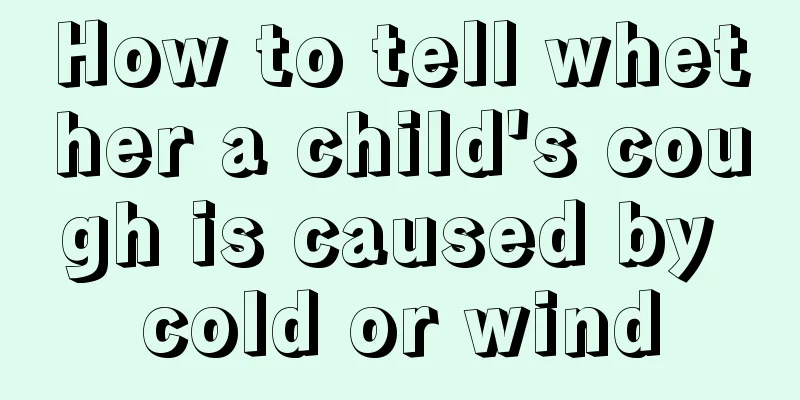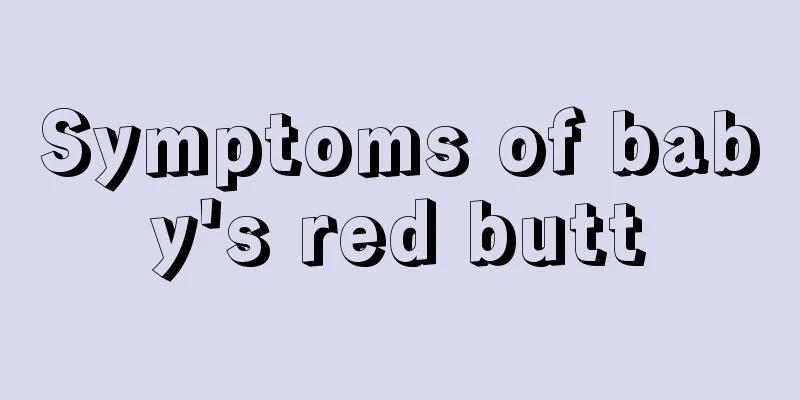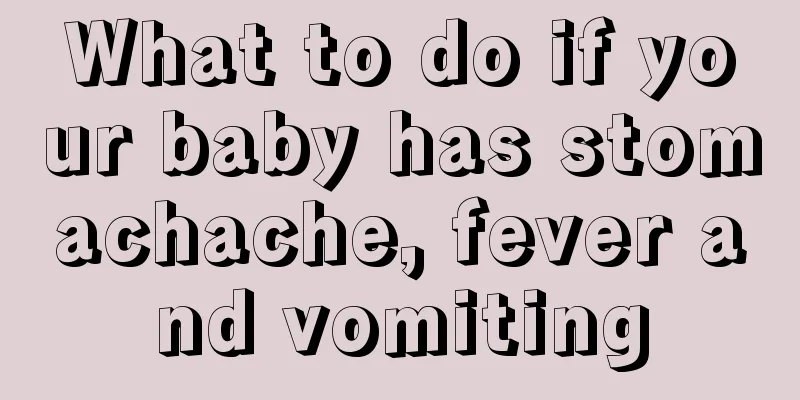Is brain hypoxia serious in premature infants?
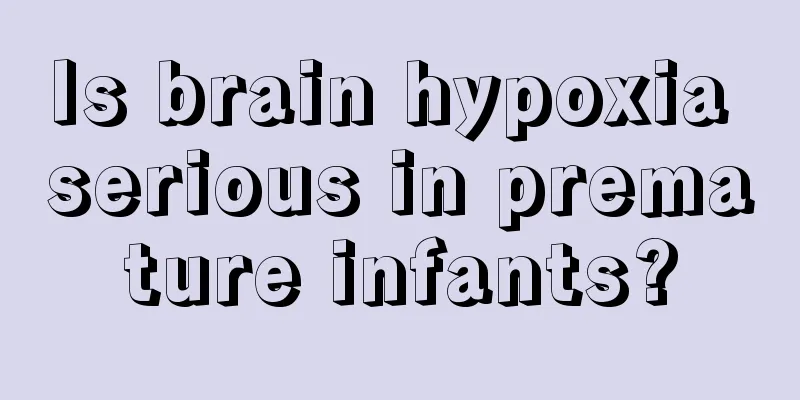
|
Pregnancy and childbirth are important stages in life that every woman will go through. Pregnancy is a very hard thing, and every family wants their future baby to be born healthy. However, during the birth of the fetus, some unexpected situations are inevitable, which makes everyone very worried. So, is brain hypoxia serious in premature babies? Regarding brain hypoxia in premature infants, please see the following introduction. Neonatal hypoxia refers to hypoxic-ischemic damage to the brain caused by perinatal asphyxia. A series of encephalopathy manifestations appear clinically. This disease not only seriously threatens the life of newborns, but is also one of the most common causes of disability in post-neonatal children. Perinatal asphyxia is the main cause of this disease. Anything that causes obstruction of blood circulation and gas exchange between the mother and fetus, resulting in a decrease in blood oxygen concentration, can cause suffocation. 50% are caused by intrauterine asphyxia; 40% are caused by asphyxia during delivery; and 10% are caused by congenital diseases. In addition, the mother herself has pregnancy-induced hypertension syndrome, massive bleeding, cardiopulmonary disease, severe anemia or shock; the placenta has placental abruption, placenta previa, placental dysfunction or structural abnormalities; the fetus has intrauterine growth retardation, premature birth, post-term birth, congenital malformations, recurrent apnea, RDS, bradycardia, severe heart failure, shock and polycythemia; umbilical cord blood blockage, umbilical cord prolapse, compression, knotting or wrapping around the neck; delayed labor, precipitous labor, abnormal fetal position during delivery, surgery or the use of anesthetics and other factors may all lead to brain hypoxia in the baby. Doctors usually perform Apgar scores on newborns twice, one minute and five minutes after birth. The normal newborn has a full score of 10 points. The lower the score, the more severe the baby's lack of oxygen and asphyxia before birth. For example, a score of 7 or above indicates mild hypoxia, which often does not affect the prognosis; a score of 4-6 indicates moderate asphyxia, which can usually be recovered in a short time after active treatment; a score of less than 4 indicates severe hypoxia, asphyxia, and respiratory depression. At this time, a doctor must perform emergency rescue and resuscitation to have a chance of improvement, otherwise it will be difficult for the newborn to survive. Newborns who have not yet established normal and effective breathing but still have a very low score 10 minutes after birth despite emergency resuscitation may suffer from sequelae such as mental retardation or movement disorders in the future due to damage to brain cells due to prolonged lack of oxygen, even if they survive. Children with this disease have low resistance and are also prone to diseases such as aspiration pneumonia, neonatal scleredema, hypocalcemia, hypoglycemia, neonatal intracranial hemorrhage and systemic infection. Is brain hypoxia serious in premature babies? Cerebral hypoxia in premature infants is a rather troublesome and dangerous condition, which poses a great threat to the life of the fetus and may even affect future intelligence. Therefore, when a pregnant woman is giving birth, she must take many preventive measures, treat the delivery process with caution, and try to avoid such situations. |
<<: What are some good warm-up activities for toddlers?
>>: What to do if your 2-year-old baby is picky about food
Recommend
Be careful! Children who often eat off-season fruits are prone to precocious puberty
In modern life, people's living standards are...
How to determine benign epilepsy in children?
Epilepsy is a very scary disease. Once the diseas...
What are the symptoms of rheumatism in children
We all know that rheumatism is a common disease a...
Baby autumn and winter skin care
The skin of infants and young children also needs...
What to do if your 4-month-old baby has enteritis
If a four-month-old baby gets enteritis, the harm...
How to deal with a scratch on the baby's face
The baby's skin is relatively delicate. If th...
The top of your baby's head is white. Do you know what this is?
If the top of your baby's head turns white, i...
Baby's eyes have red bloodshot
Newborns often bleed after the umbilical cord fal...
What is the problem with the baby's heavy breathing and red sound?
It goes without saying that parents love their ba...
What to do if your eight-month-old baby has asthma
Eight-month-old babies often need breast milk. At...
What to do if your child keeps hiccuping
Although hiccups are common, prolonged hiccups ca...
What should I do if my child always steals things?
Some parents will find that their children often ...
What does a child lack that will affect his intellectual development?
The intellectual development of children is of gr...
Will stitches on a child's forehead leave scars?
When a child's forehead is hit by a sharp obj...
Massage methods for children to enhance their immunity
Children's resistance is relatively poor, esp...


